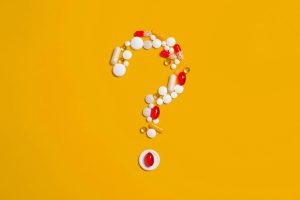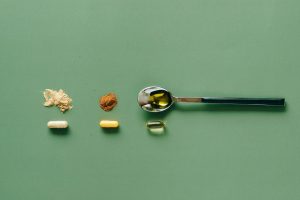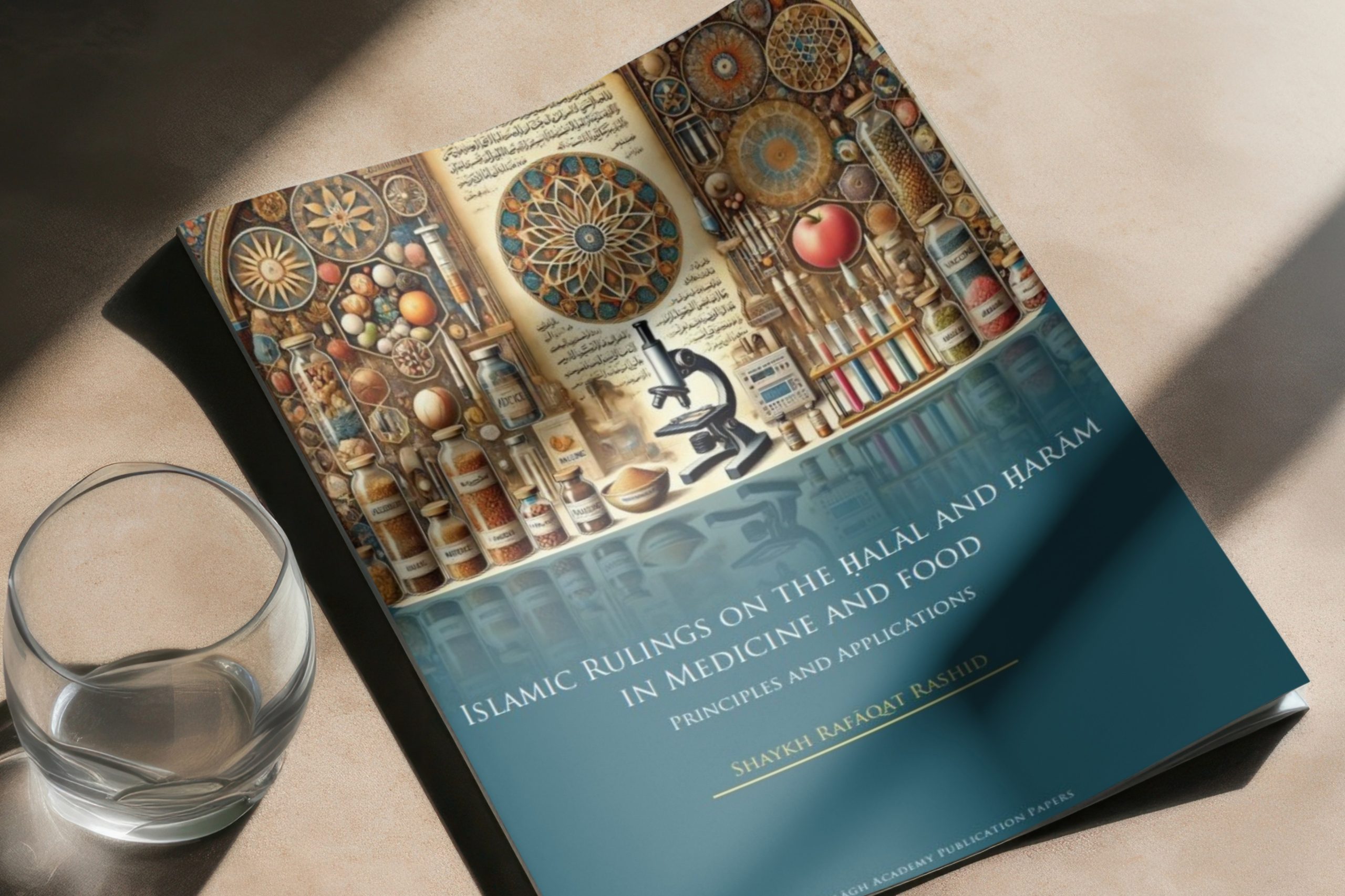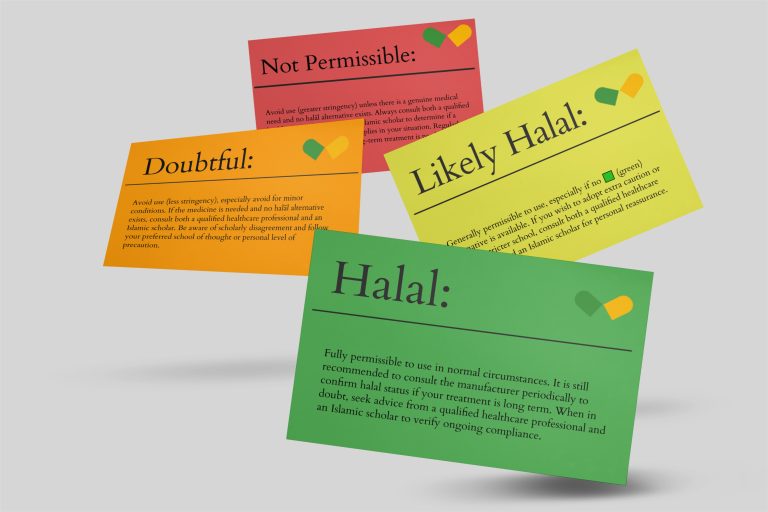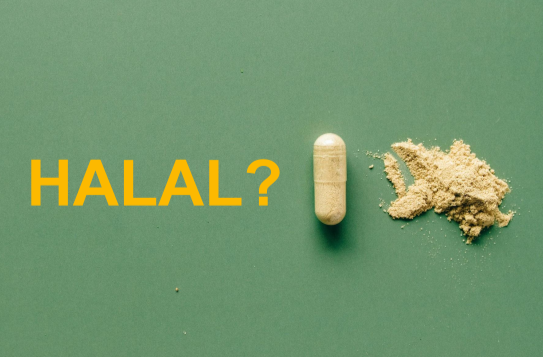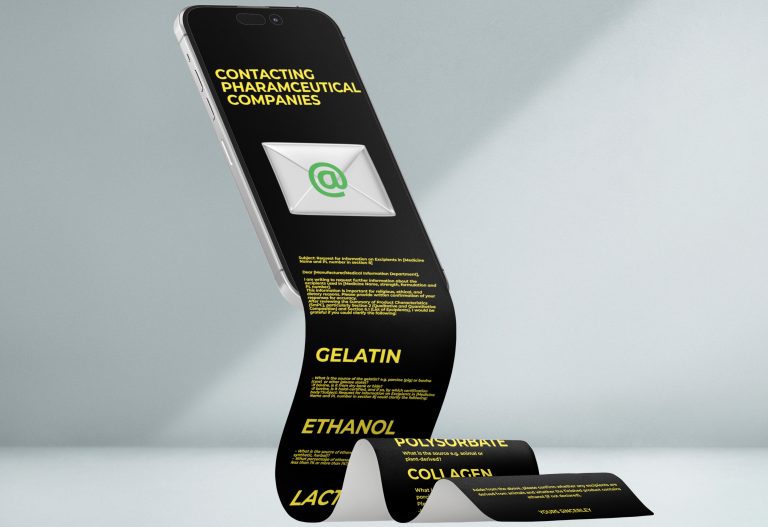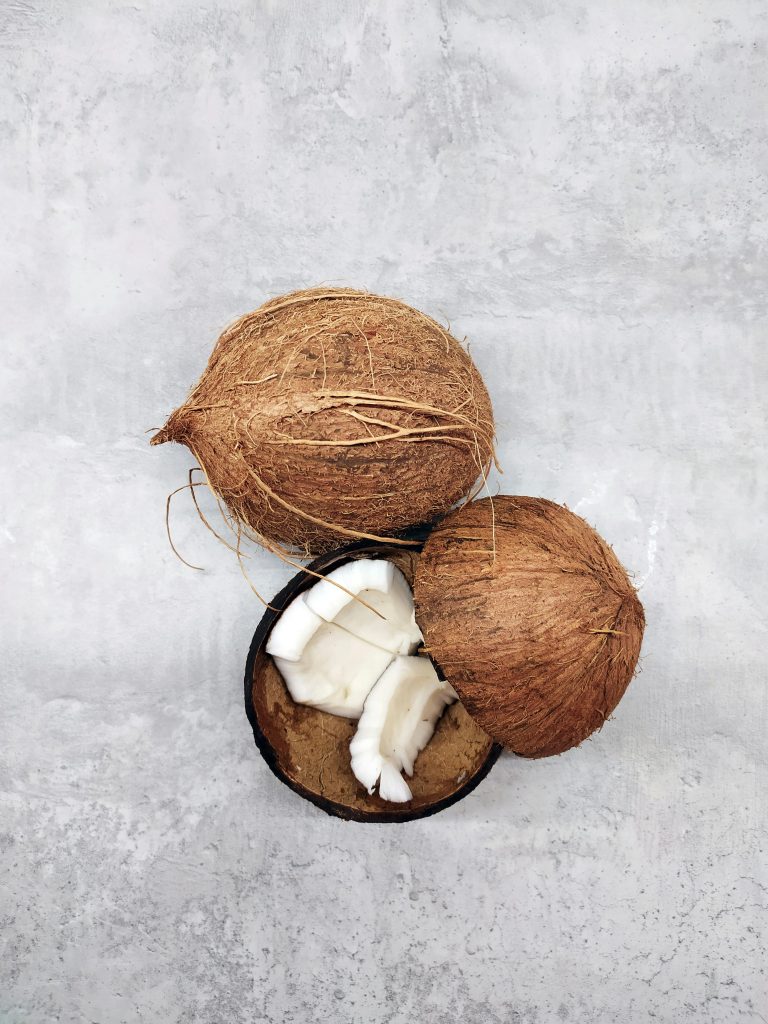Magnesium stearate in medicines
This resource explains the use of magnesium stearate in medicines and outlines the Islamic rulings on its permissibility.
What is magnesium stearate and how is it used in medicines?
- Magnesium stearate is a salt made up of stearic acid (a saturated fat) and magnesium (a mineral). 1
- It is an inactive ingredient used in tablets, capsules, and powders.2 It acts as a lubricant, preventing ingredients from sticking to each other and the machine used to make the capsules.1 It can be used as a release agent to delay the breakdown and absorption of medicines until it reaches the correct area of the bowel.2
- The stearic acid used to make magnesium stearate can come from either plant or animal sources.1 3 However in practice, most of the magnesium stearate used in medicines today is plant derived.
- Sources are:
🕌 Islamic ruling on magnesium stearate
| Source | Ruling (Hanafi,Maliki, Shafiʿi and Hanbali) |
|---|---|
| Plant | ✅ Halal |
| Bovine (cow) Islamically slaughtered | ✅ Halal |
| Bovine (cow) non-Islamically slaughtered | ❌Haram |
In summary, according to the four schools of thought (Hanafi, Maliki, Shafi’i and Hanbali):
- Halal → Magnesium stearate derived from plant or Islamically slaughtered cows
- Haram → Magnesium stearate derived from tallow, which is the fat from non-Islamically slaughtered cows.1
If you are unsure about taking or using medicines containing ingredients and/or excipients from haram sources, seek guidance from a practising Muslim HCP such as a pharmacist or doctor. Alternatively, consult your local Imam or a trusted Islamic scholar, ideally one who has knowledge and expertise in the fiqh (Islamic rulings) of medicine.
💭Did you know?
Even if a medicine contains an ingredient/excipient from a haram source, it may still be permitted in certain cases. Here are three Islamic maxims (principles):
- Medical need or necessity (hajah and darurah): Under this principle, if there is a medical necessity, such as an emergency situation, or where there is a strong chance the individual’s health will deteriorate, and if no viable halal alternative is available, then it is permitted to take a medicine containing magnesium stearate derived from haram sources, until a viable halal alternative becomes available.
- An impermissible medicine becomes permissible if five conditions are fully met (click here to learn what the five conditions are).
- Hardship begets facility (al-mashaqqa tajlib at-taysir): Under this principle, if applying religious practice becomes too burdensome or creates hardship, then leniency can be applied to ease it (Click here to read more). If you have tried your best to seek an alternative halal medicine and it becomes too difficult for you, this principle allows you to take/use the medicine you have been prescribed/supplied.
⚠️ Important information for patients
- Always take or use your medicine(s) exactly as directed or prescribed by your healthcare professional (HCP), such as your doctor or pharmacist
- Do not stop, delay, change or alter the way you take or use your medicine(s) without first discussing it with the HCP who prescribed or supplied it to you
- Always consult your HCP if you have any questions or before making any decisions about your treatment
- For Islamic guidance, seek advice from your local Imam or a trusted Islamic scholar – ideally someone with relevant knowledge and expertise in the fiqh (Islamic rulings) of medicines
- Use the information gathered to make an informed decision together with your HCP and, if needed, your local Imam or trusted Islamic scholar.
FAQs
Disclaimer
- This resource is for educational purposes only. It does not constitute clinical, medical, or professional healthcare advice and should not replace individual clinical judgement or qualified religious guidance
- Always consult your doctor, pharmacist, or other healthcare professional regarding your own medical conditions or for advice on treatment options
- Healthcare professionals remain fully responsible and accountable for decisions made within their own scope of practice.
References and resources
- Hansen, K. (2017). Everything You Should Know About Magnesium Stearate. [online] Healthline. Available at: https://www.healthline.com/health/magnesium-stearate. ↩︎
- Hobbs CA, Saigo K, Koyanagi M, Hayashi SM. Magnesium stearate, a widely-used food additive, exhibits a lack of in vitro and in vivo genotoxic potential. Toxicol Rep. 2017 Oct 16;4:554-559. Accessed 4.3.25 from: https://pmc.ncbi.nlm.nih.gov/articles/PMC5655391/ ↩︎
- Pharma Excipients. (2024). Introduction to Stearic Acid as a pharmaceutical Excipient. [online] Available at: https://www.pharmaexcipients.com/stearic-acid-excipient/. ↩︎
- Islamic Perspective on Magnesium Stearate by Shaykh Dr Rafaqat Rashid ↩︎


